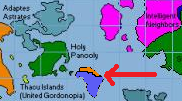

![]() by The Macabees » Thu Dec 20, 2012 9:21 pm
by The Macabees » Thu Dec 20, 2012 9:21 pm

![]() by The Macabees » Sat Dec 22, 2012 11:54 am
by The Macabees » Sat Dec 22, 2012 11:54 am

![]() by The Macabees » Mon Apr 14, 2014 6:42 pm
by The Macabees » Mon Apr 14, 2014 6:42 pm

![]() by The Macabees » Tue Apr 15, 2014 8:42 pm
by The Macabees » Tue Apr 15, 2014 8:42 pm

![]() by The Macabees » Wed Apr 16, 2014 2:27 pm
by The Macabees » Wed Apr 16, 2014 2:27 pm

![]() by The Macabees » Thu Apr 17, 2014 3:04 pm
by The Macabees » Thu Apr 17, 2014 3:04 pm


![]() by The Macabees » Sun Apr 20, 2014 11:14 am
by The Macabees » Sun Apr 20, 2014 11:14 am

![]() by The Macabees » Mon Apr 21, 2014 5:05 pm
by The Macabees » Mon Apr 21, 2014 5:05 pm


![]() by The Macabees » Wed Apr 23, 2014 9:03 pm
by The Macabees » Wed Apr 23, 2014 9:03 pm

![]() by The Macabees » Fri Apr 25, 2014 1:19 pm
by The Macabees » Fri Apr 25, 2014 1:19 pm


![]() by The Macabees » Fri May 02, 2014 7:55 am
by The Macabees » Fri May 02, 2014 7:55 am


![]() by The Macabees » Sat May 03, 2014 9:23 pm
by The Macabees » Sat May 03, 2014 9:23 pm


![]() by The Macabees » Sun May 04, 2014 9:51 pm
by The Macabees » Sun May 04, 2014 9:51 pm

![]() by The Macabees » Mon May 05, 2014 5:28 pm
by The Macabees » Mon May 05, 2014 5:28 pm


![]() by The Macabees » Tue May 06, 2014 3:09 pm
by The Macabees » Tue May 06, 2014 3:09 pm

![]() by The Macabees » Wed May 07, 2014 12:29 pm
by The Macabees » Wed May 07, 2014 12:29 pm

![]() by The Macabees » Thu May 08, 2014 5:23 pm
by The Macabees » Thu May 08, 2014 5:23 pm


![]() by Lamoni » Fri May 09, 2014 4:12 am
by Lamoni » Fri May 09, 2014 4:12 am


Licana on the M-21A2 MBT: "Well, it is one of the most badass tanks on NS."
Vortiaganica: Lamoni I understand fully, of course. The two (Lamoni & Lyras) are more inseparable than the Clinton family and politics.
Triplebaconation: Lamoni commands a quiet respect that carries its own authority. He is the Mandela of NS.

![]() by Morrdh » Fri May 09, 2014 5:54 am
by Morrdh » Fri May 09, 2014 5:54 am

![]() by Lamoni » Fri May 09, 2014 7:30 pm
by Lamoni » Fri May 09, 2014 7:30 pm
Licana on the M-21A2 MBT: "Well, it is one of the most badass tanks on NS."
Vortiaganica: Lamoni I understand fully, of course. The two (Lamoni & Lyras) are more inseparable than the Clinton family and politics.
Triplebaconation: Lamoni commands a quiet respect that carries its own authority. He is the Mandela of NS.

![]() by The Macabees » Fri May 09, 2014 8:53 pm
by The Macabees » Fri May 09, 2014 8:53 pm


![]() by Stevid » Sat May 10, 2014 4:44 am
by Stevid » Sat May 10, 2014 4:44 am

![]() by The Macabees » Sat May 10, 2014 11:29 pm
by The Macabees » Sat May 10, 2014 11:29 pm


![]() by Lamoni » Sun May 11, 2014 1:03 am
by Lamoni » Sun May 11, 2014 1:03 am
Licana on the M-21A2 MBT: "Well, it is one of the most badass tanks on NS."
Vortiaganica: Lamoni I understand fully, of course. The two (Lamoni & Lyras) are more inseparable than the Clinton family and politics.
Triplebaconation: Lamoni commands a quiet respect that carries its own authority. He is the Mandela of NS.

![]() by The Macabees » Sun May 11, 2014 6:39 pm
by The Macabees » Sun May 11, 2014 6:39 pm
Advertisement
Return to International Incidents
Users browsing this forum: Baltinica, Socalist Republic Of Mercenaries
Advertisement